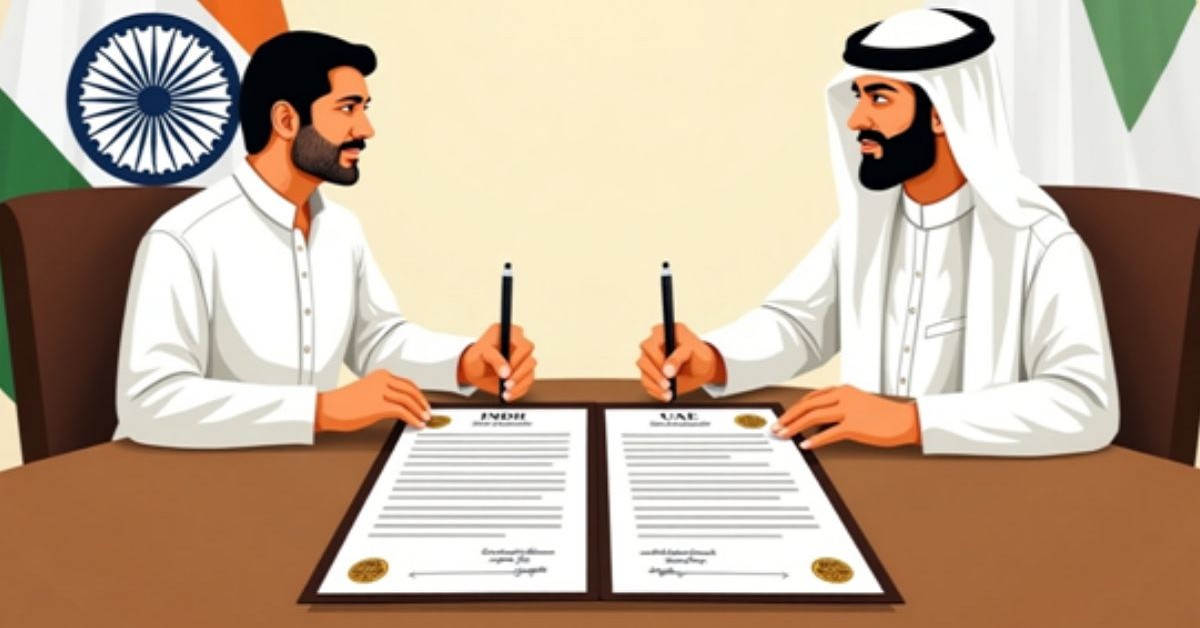Extradition from the United Arab Emirates is regulated by bilateral treaties, domestic law, and international legal principles. As a hub for global travel and finance, the UAE frequently handles extradition requests, particularly from European and Asian countries. The process involves legal, diplomatic, and judicial procedures and can be complex for individuals facing extradition.
How does extradition between the UAE and India work?
The India UAE extradition treaty has been in force since 2000 and allows both countries to request the transfer of fugitives for prosecution or to serve sentences. The treaty covers a broad range of criminal offenses and provides a clear procedural framework.
Extradition requests from India are reviewed by UAE authorities to ensure the offense is extraditable under UAE law. Dual criminality is essential-the alleged act must be a crime in both countries. The UAE courts also assess whether the request meets treaty obligations and does not involve political, military, or religiously motivated offenses.
Once approved by the judiciary, the Ministry of Justice forwards the case to the executive branch for final decision. Legal representation during this process is vital to protect the rights of the person facing extradition.

Extradition from the UAE to Germany: Legal specifics
Although there is no specific treaty, extradition from the UAE to Germany may still occur based on mutual legal cooperation. Germany often initiates extradition for economic crimes, fraud, or cybercrime. A German lawyer UAE expert can help navigate the UAE's requirements.
In such cases, the UAE applies its federal extradition law, which allows surrender if the crime is serious and punishable in both states. UAE authorities thoroughly review the evidence, legal basis, and potential human rights risks before making a decision.
As Germany is an EU member state, its requests must also meet international standards of due process and fair treatment. Legal counsel can challenge requests that lack clarity or violate procedural rules.
Agreements between the UAE and Spain on extradition
Spain and the UAE maintain cooperative legal relations, and extradition lawyer in Spain services are commonly engaged to handle such cases. The extradition process follows similar principles of dual criminality, documentation review, and court hearings.
Spain may request extradition for offenses like drug trafficking, organized crime, or tax evasion. The UAE courts evaluate each case carefully, and defense attorneys can present objections based on insufficient evidence, political motives, or risk of unfair treatment.
Once the court rules in favor of extradition, the final decision is made by the UAE Ministry of Justice. Appeals and temporary suspension of extradition are possible in certain circumstances.
How to request extradition or avoid being extradited?
Countries seeking extradition must submit a formal request through diplomatic channels, supported by documentation such as arrest warrants, legal descriptions of the offense, and evidence. The UAE authorities verify that all requirements under domestic and treaty law are met.
To avoid being extradited, the individual or their legal team can challenge the request on legal grounds-such as lack of dual criminality, procedural flaws, or concerns about the requesting country's legal system. The process allows for hearings, appeals, and presentation of expert testimony.
Legal protection in case of extradition threats
Legal protection is essential for individuals facing extradition from the UAE. Early intervention by experienced lawyers can significantly impact the outcome. Defense strategies may include challenging the evidence, citing human rights risks, or arguing the case falls under non-extraditable exceptions.
Legal assistance also ensures access to bail, communication with consulates, and preparation of appeals. Whether dealing with the India UAE extradition treaty, seeking advice from an extradition lawyer in Spain, or working with a German lawyer UAE, having expert representation is critical to protecting one's legal rights.
Join LAWyersClubIndia's network for daily News Updates, Judgment Summaries, Articles, Forum Threads, Online Law Courses, and MUCH MORE!!"
Tags :Others











